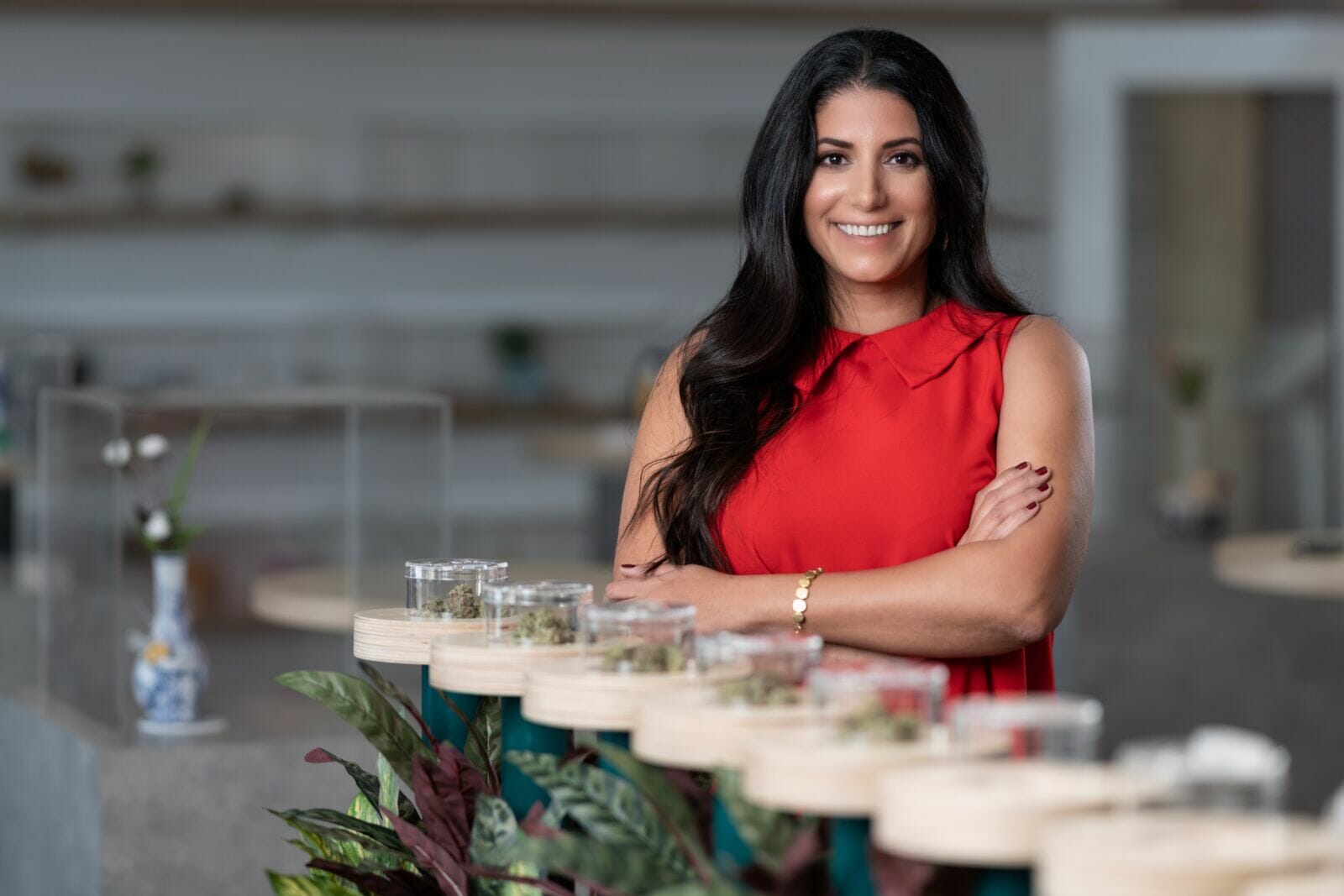More than a decade ago, the seeds of a new industry were planted in the Grand Canyon State. Voters approved Proposition 203, which created Arizona’s medical marijuana program. The law allowed patients with qualifying conditions to purchase cannabis products from licensed dispensaries. To address demand for medical cannabis, the Arizona Department of Health Services (ADHS) was given regulatory powers over the nascent sector. In the years since, a robust cannabis industry has grown in Arizona within the bounds of Prop 203.
In 2020, the state’s voters returned to the ballot box to pass Proposition 207, which fully legalized recreational cannabis consumption for adults ages 21 and older. Medical dispensaries were able to apply for dual licensure, which meant they could begin selling cannabis that met Prop 207’s requirements to recreational users. The difference between the two types of users lies in the approved levels of tetrahydrocannabinol (THC), the psychoactive chemical that produces an intoxicated state when smoked, vaporized or ingested. Patients in the medical program are allowed to possess larger quantities of cannabis and can purchase edibles with higher concentrations of THC.
READ ALSO: 5 of the most influential women in Arizona cannabis industry
READ ALSO: How are recreational marijuana sales doing after six months?
Recreational cannabis purchases also carry a higher tax than medical products. Both are subject to transaction privilege taxes — which are general retail sales taxes levied by the state, county and municipalities — but recreational purchases also include a 16% excise tax. According to the Arizona Department of Revenue, the state has received $115,701,426 from taxes collected through medical and recreational cannabis sales as of August 2021.
Sam Richard, executive director of the Arizona Dispensary Association, puts this revenue collection into perspective. “During the Prop 207 campaign, we said that within a few years, the entire cannabis program would contribute $300 million of tax revenue to the state. More than $115 million has been collected as of August, so we are on pace to hit $250 million this year,” he notes.
“The final revenue number will be more than just a doubling of the first half of the year, partly because we didn’t start recreational adult use sales until Jan. 22,” Richard explains. “Furthermore, not every dispensary with one of the state’s currently awarded 143 licenses is open and ready for business. In the last 30 or so days, two more dispensaries opened their doors, and over the course of the next 45 to 90 days, there’ll be at least three additional stores that begin operations.”
Richard adds that the numbers look even more impressive when you consider the impact the pandemic has wrought on Arizona’s tourism industry. He thinks that the winter months could see higher sales numbers from winter visitors and those who own second homes in the state.
With Prop 207 becoming the law of the land, a robust industry is flowering from the roots established from Prop 203’s passage. But what affect will this rising sector have on Arizona’s economy, and what challenges lie ahead?
Cultivating success in the cannabis industry
Lilach Power is the founder and CEO of The Giving Tree and the only female majority-owner of a dispensary in Arizona. Prior to recreational legalization, The Giving Tree operated as a medical dispensary and cannabis cultivator. After the passage of Prop 207, Power applied for and was awarded a dual license to serve both patients and recreational customers.
The Giving Tree so happened to move its retail location as recreational sales were coming online, which led to long lines in the store, but adding employees helped meet the increased demand.
“On the retail side, we went from 12 people to 26. Overall, the team has doubled to 65 employees,” Power says. “Between the move and the start of adult use — which happened the same day, so we don’t know the exact cause — sales have tripled.”
Part of what has boosted sales numbers is the diversity of people who walk through the doors. “Our customers are almost 40% female, which is fantastic. About 35% are over age 40, and nearly 60% are over 30,” Power notes. “Everybody has an image of a 20-something in a dispensary, but they’re actually a smaller portion of who we see.”
Like many dispensaries, The Giving Tree grows and distributes its own brand of cannabis products. It owns Kindred, a brand of THC capsules with dosages meant for daytime and nighttime use that is available in 65 dispensaries in Arizona. The company recently launched Revelry, a line of capsules that are formulated specifically for addressing the symptoms women experience during menopause.
The dispensary’s cannabis plants are grown in The Giving Tree’s prior location, which had been split between the grow operation and retail. Now, the space is expanding to accommodate increased demand for the company’s brands. At the cultivation facility, cannabis is grown under exacting standards to ensure the consumer receives a high-quality, consistent product.
“Product testing is now a requirement under the adult-use bill. We test everything from the flower to the bulk oil we extract. We also test each of our capsules to make sure that if it says 5 milligrams of THC, the customer actually gets 5 milligrams,” Power explains. “I always say that if my mom walks in here, she can buy anything with the confidence that she’s getting what’s on the label.”
Cannabis professionals
The actual part of the plant that is smoked, colloquially known as flower, is the bud of a female cannabis plant that is covered in a sticky oil that contains THC and other naturally occurring chemicals. The extraction process involves removing the oil from the flower to create a concentrate, which can be used in a variety of products, including edibles and capsules, or vaporized in its raw form.
As such, the types of employees that a dispensary requires goes beyond “budtenders,” who are the front-of-house staff who educate patients and customers on different products. At The Giving Tree, grow techs help with the cultivation process, trimmers remove the flower from the plant and prepare it for sale, and inventory staff weigh and package products.
“On the extraction side, we have a chemist who works on formulation and research and development. We have folks who work on compliance, a marketing team, a sales director, human resources, finance and bookkeeping,” Power says. “people think all we do is grow and sell weed, but there’s a whole orchestra of professionals who make this happen. We’re a legitimate company with benefits, 401k matching, fundraisers for charity and employee happy hours.”
Ryan Hermansky, one of three founders of Noble Herb in Flagstaff, notes that the cannabis industry has professionalized over the last decade. The dispensary produces two brands of products, Everest Concentrates and Pure Edibles, both of which require special skill sets to create.
“Anybody who works in our lab has a chemistry degree or a science-based degree, which gives them the foundation to learn, make adjustments and continually educate themselves as this industry grows and becomes more professional,” Hermansky says. “On our edible side, we employ multiple Le Cordon Bleu culinary school graduates, as well as people who’ve owned catering businesses and run grocery store bakeries. We’re seeing highly educated and experienced people leave their industries and venture into ours.”
Hermansky adds that more colleges and universities are starting to offer cannabis-related courses particularly within the agricultural field. “The days of learning everything off of YouTube are behind us,” he says.

In the weeds
Despite the impressive growth and professionalization of the cannabis industry, there are still issues stymying the sector’s expansion. For dispensary owners, finding property with the right zoning to conduct their businesses can be a challenge
As the cannabis market has matured, some negative attitudes towards the industry have started to fade. “Six or seven years ago, a lot of landlords did not want cannabis businesses on their property. Today, they see the value and understand that they can charge significantly more for cannabis use, but nothing to the point of being unethical,” says Laura Bianchi, partner at Bianchi & Brandt. “From an investor perspective, we’re seeing Wall Street guys who are interested and tend to like the real estate side as their first step into the industry. I’ve seen a significant shift in the perspective of cannabis facilities in that people are recognizing it’s something they can benefit from, and it doesn’t really matter whether they like cannabis or not.”
Another area of concern is banking. Many dispensaries have to operate as cash businesses due to the reluctance of financial institutions to work with them. Wade M. Burgeson, shareholder at Engelman Berger, explains: “Because marijuana remains federally illegal, traditional financing for any marijuana-related business is limited to just a few financial institutions. Although the Financial Crimes Enforcement Network has issued ‘guidance,’ application of that guidance remains uncertain, and financial institutions continue to face myriad federal financial crimes laws and potential regulatory issues.”
Power mentions that unlike in other states that have legalized cannabis, there are Arizona banks that will work with local dispensaries. “We have a bank, but the relationship is very limited. We don’t have loans, and we can’t process credit cards,” she says.
Noble Herb is in a similar situation. “We work with a legitimate bank, so our payroll is normal and we have typical banking transactions. The biggest difference between coming into our dispensary versus any other retail location is the lack of debit and credit card access,” Hermansky notes.
One company, the name of which Power declined to provide, has created a new solution — that her bank’s compliance department approved — that allows The Giving Tree to accept debit cards as a form of payment. “It’s one of those little celebrations in our industry that helps us get more legitimized,” she says.
Burgerson notes that lawmakers at the federal level are working to pass measures into law that will grant the growing multibillion-dollar cannabis industry access to the full and unrestricted suite of banking services.
“The current legislative efforts include the Secure and Fair Enforcement Banking (SAFE) Act and the Marijuana Opportunity Reinvestment and Expungement (MORE) Act. Both the SAFE Act and the MORE Act have passed the House and are pending before the Senate. Among other things, these acts will expand the safe harbors for financial institutions, potentially de- or re-schedule cannabis under the Controlled Substances Act and make small business administration loans available for cannabis related businesses or service providers,” Burgerson says.
Doug Daly, one of the founders of Noble Herb, concludes that all signs point to the continued expansion of the industry. “The opposition’s predictions about the negative impacts of legalization just haven’t proven to be true. We’re close to more than 100 million Americans who have access to recreational or medical marijuana, and they’re experiencing the personal benefits,” he says. “And states are seeing the financial benefits, including additional tax revenue and the explosion of job opportunities.”




